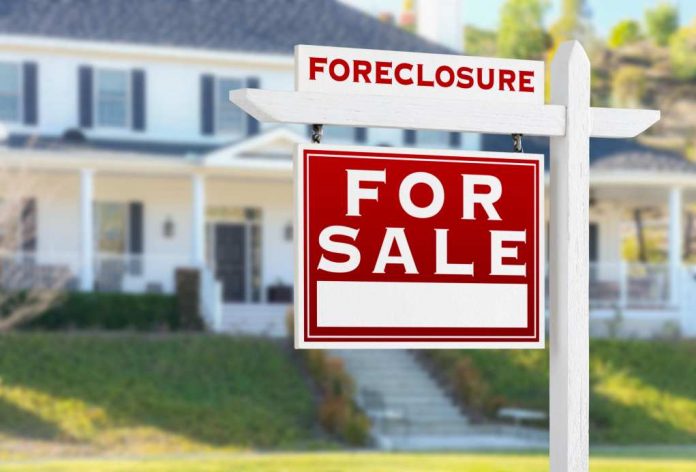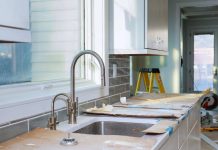Young people nowadays have very different financial aspirations compared to older generations. If you talk to an average millennial, you likely won’t find their goals steered towards possessions. If you look back 30-40 years, you’d find the average American dreaming of owning a house (or 2) with a picket fence and a couple of cars in the driveway. However, now, you’ll find many young people focused on their careers, focused on improving their mental health, and focused on experiencing things that make their lives more fulfilling, such as traveling. However, there’s one single constant. The one goal all generations always had, and will probably have for the foreseeable future is owning our own homes.
Keep in Mind…
It could possibly be a part of our upbringing and/or education, however, owning homes seems like a natural instinct to many out there. But, on the logical side, owning a house seems like the most sensible thing to do for those who can afford it. We’ll start our argument by looking at the sheer financial side of things. There’s absolutely no denying that the real estate market saw ridiculous inflation during the pandemic. We also know that housing prices never actually go down. So, if you invest in a house, there’s little chance you’ll lose money unless some extreme cases occur. But, realistically, you’re likely to make a lot of money back, should you ever decide to sell that house down the road. With all that in mind, investing your money into a house seems like one of the best, if not the best investment you could possibly make.
But, money isn’t everything. When making a big decision such as buying a house, we should always consider all related factors. So, what other angles should we look at the decision from? Well, remember when we mentioned mental health earlier? Turns out having your own place, and/or growing up in a stable home can have a significant influence on your mental health. Obviously, raising children without the risk of losing your home provides the stability necessary for a healthy childhood. But, besides that, apparently stable housing can also lead to a direct decrease in crime rates.
Here’s How You Could Afford Buying Your Own Home
So, the federal government has this department called Housing and Urban Development (HUD). The people at HUD focus on providing affordable housing for Americans. Among the many programs they create to help out Americans with housing, is one dedicated to providing affordable ownership of houses and we’ll refer to that program as HUD Homes. These houses were foreclosed by HUD. We’ll go over why they were foreclosed and how to avoid getting yours foreclosed. More importantly, we’ll go over how you could get your hands on one of these houses. Also, what you should be looking out for.
Why Does HUD Foreclose On These Houses? And, What Exactly Is Foreclosure?
When it comes to buying houses, most people don’t pay the whole price upfront. The most likely scenario is that people will borrow the money to buy it from somewhere, then pay it off over time. House-related loans are referred to as mortgages. In some cases, borrowers are not able to repay their mortgages, for one reason or another. In that case, lenders will take possession of their homes. That takeover is also known as foreclosure.
In this scenario, HUD forecloses homes that were financed through loans from the Federal Housing Administration (FHA). Basically, people who take mortgages from FHA and buy houses, then fail to pay them back, will have their houses foreclosed upon by HUD. These houses will then be re-sold through the Hud Homes program.
What’s the FHA Loan All About?
FHA loans are pretty popular among people looking to buy houses. The Federal Housing Administration, through this loan program, focuses on helping low- and moderate-income families. And, the way it works is that FHA will be your guarantor when you’re applying for mortgages from private lenders, such as banks. Hence, you have a better chance to get pre-approved for such loans. This is especially helpful for people whose credit scores are too low to qualify for such mortgages. Also, through FHA, you can get a loan that will cover most of the cost of your new home. That way you don’t have to invest much as a down payment.
Let’s get into the technical stuff. So, if you have a credit score of 580 or above you may be eligible for a mortgage that will pay for 96.5% of your new house’s value. That means you’ll only be left with 3.5% to pay as a down payment. Moreover, if you have a credit score between 500 and 579, you may receive a mortgage that’ll cover 90% of your house’s value. That would leave you with 10% to pay as a down payment. When deciding on your eligibility for loans, FHA will base their decision on the following:
- Financial history
- Employment history
- Credit score
- Debt-to-Income ratio
- Plans that you have for the property
How You Can Get Your Hands On a HUD Home
We’ve already covered how HUD acquires those homes, and how the FHA plays its role in the process. We also talked about what FHA loans are, and how to get yourself one. So, now that we’re done with the background information and financial advice, let’s talk about the application process.
To explore your options, you can start by checking the HUD Home Store. The website will include listings across the nation. Obviously, you don’t need to look at houses in each state or city. You’ll want to narrow down your search to the city or county of your desire. Thankfully, the website comes with filtering functions to help you narrow down your search. Second, you’ll need to understand that you can’t just pick a house and buy it right away. Instead, house sales are done through bidding. Technically, you can bid any number you want for a HUD Home. Realistically, you should give that number a bit of thought.
HUD is not in the business of making money out of these houses. One of the main purposes of the program is to make back the money lost to the loan. As a matter of fact, HUD will accept bids with amounts equal to 85-88% of a house’s actual value. However, it would be useful to remember that you’re not the only one bidding for these houses. So, if your bid is too low, one of two things could happen. HUD can outright reject your bid. Or, you can get outbid.
What The Actual Bidding Process Should Look Like
- You’ll need to identify your actual budget for your new house. You don’t want to stretch yourself too thin financially. You want to make sure that whatever loan you take from FHA or other lenders, you’ll be able to pay it back. Otherwise, your house might get added to the list of foreclosed homes.
- While you’re choosing your house from the list on the HUD store, don’t rush. It’s important to compare all of your choices, as well as other alternatives. You might find a better deal if you look for longer. If not, you can be very sure of your choice.
- HUD is particular about who gets to bid. So, as an average citizen, you’re not allowed to place a bid. Instead, you’ll need to hire a HUD-licensed realtor. You’ll most likely find one mentioned on the page for the house you want to buy. You don’t have to go with that one if you don’t want to. Any HUD-licensed realtor will do.
- Just like with any other purchase, it can only be better with hands-on experience. We highly recommend you go and visit any house before you buy it. It can be especially important in the case of a foreclosed home. If prior owners couldn’t make their mortgage payments, there’s a chance they didn’t spend much on maintaining their homes.
- Not to downplay your inspection abilities, but a professional inspector is almost necessary at that point. They’ll know exactly what to look for and will be able to give you a summary of a house’s condition
- The timing of your purchase can be a little tricky. You don’t want to rush the decision. But you also don’t want to wait too long.
A Few More Things You Should Know
What we’ve already discussed pretty much covers the main information you should know. However, there are a few more things you might find useful:
- HUD will keep bidding for houses exclusive to people who intend to live in them for the first 30 days. After that, bidding will open to investors as well.
- If someone outbid you, or if HUD rejected your bid, you can try again. Obviously, the logical thing would be to bid with a higher number.
- HUD drops the price of the houses by 10% every month the house doesn’t get sold.
Here’s What You Should Be Looking Out For When Inspecting A New House
As we’ve mentioned before, foreclosed houses need a closer inspection. Even though they are sold as-is, you will want to conduct an inspection after the fact. If previous owners couldn’t pay their mortgage on time, that’s a sign that they were struggling financially. If that’s the case, it’s quite likely that they didn’t spend much to keep the house in good shape. Besides that, you really need to know what you got yourself into, after buying the house. If the house needs maintenance, there will be more to pay than just the price of the house. Every house is very different, but as a general rule of thumb, you should look into the following things:
- Plumbing
- Electricity
- Gas
- Cell Service
- Floors
- Foundation
- Basement
- Heating and cooling systems
- Walls
The ‘HUD Homes’ Deal Can Get Even Sweeter For Some
So, HUD homes are already priced lower than your average privately-owned house. The fact that the government isn’t trying to make a profit off them guarantees at least a sensible price. However, the government offers another assistance program on top. This program is called the Good Neighbor Next Door program. Teachers, police officers, firefighters, and emergency medical technicians can benefit greatly from such a program. If eligible, these people can get a 50% discount when buying a HUD home. And, speaking of eligibility, here are a couple of things that would decide on it:
- Eligible buyers must live in the house for at least 36 months.
- HUD will list houses that benefit from that program on a separate page. This removes the confusion on whether a house is susceptible to such a discount or not. You’ll also notice that all those houses will be located in areas referred to as revitalization areas. The Office of Policy Development and Research defines revitalization areas as “HUD-designated geographic areas authorized by Congress under provisions of the National Housing Act intended to promote ‘revitalization, through expanded homeownership opportunities.’”
Where Can I Learn More About Other Government Assistance Programs
Something like HUD Homes is a deal that is too good to miss out on. There are numerous housing assistance programs out there to help you out. And, it’s not just housing, the government will help you with a bunch of things. That includes medical bills, school fees, childcare expenses, and more. Many Americans miss out on making use of these programs, simply because they don’t know about them. Some will even know about them, but will not know where to start. On top of all that, some people just don’t know whether they qualify for these programs or not. And trust us, qualification is everything when it comes to government assistance programs.
Luckily, the government created a website that collects all the information about assistance programs in a neat little package. That website is called Benefits.gov. The page provides all information about government programs that you could benefit from. It will also give you the chance to fill in a 20-minute survey to help you narrow them down to the ones you may be eligible for. That survey is called Benefit Finder.














